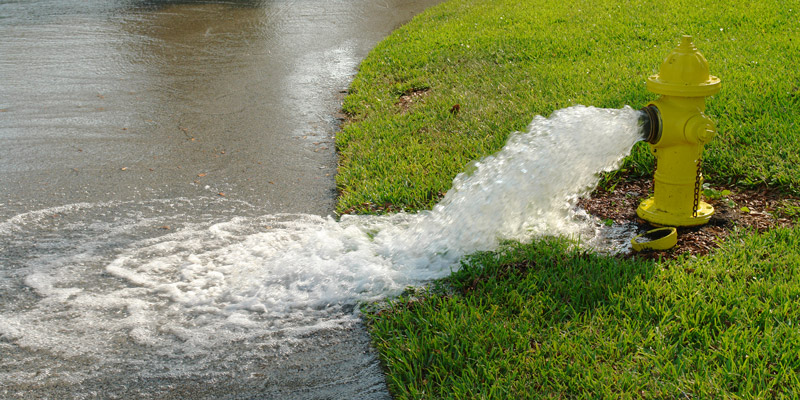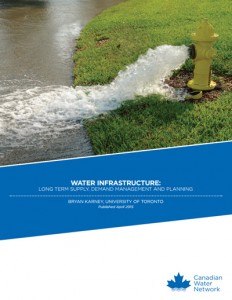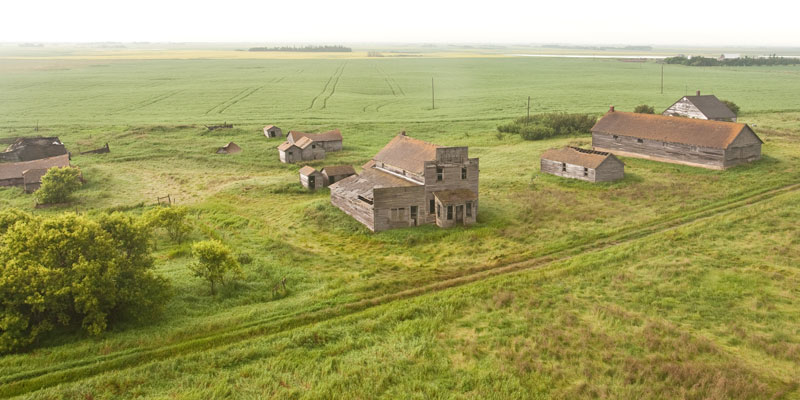Water Infrastructure: Long-term Supply, Demand Management and Planning
Principal Investigator - Bryan Karney, Chair, Division of Environmental Engineering & Energy Systems, University of Waterloo (2001-2004)

Challenge
Effective urban water management is vital for life and livelihood. Urban water supply and removal systems serve many critical functions, from that of health-support system to economic engine. Yet, when operating smoothly, their presence often goes unnoticed. Major disruptions, while dramatic and costly, are rare. Rather, it is the day-to-day system operations that produce the heaviest economic, social and environmental burden via inefficient water and energy use and unsound infrastructure investments.
This project was designed to contribute key inputs into the areas of system performance evaluation, design, management, operation and investment. Specifically, this research is targeted (i) to reduce the expense of making appropriate decisions, (ii) to reduce the stress of defending and implementing these decisions, and (iii) to increase public safety.
Project
The Water Supply Management Project encompassed 7 inter-related research components: (1) the organization of water utilities, including privatization, (2) the economic feasibility of water exports, (3) sustainable infrastructure plan for the GTA, (4) emerging water technologies, (5) water leakage, (6) intrusion pathways, and (7) loading conditions. Each of the 7 components was divided into a number of aspects of water supply management that affect water supply infrastructure.
Rather than micro-manage these issues, the research approach was to develop and exploit a global perspective relating to sustainable water issues, including:
i. Studies into the privatization and public-private sector participation in the management of water utilities
ii. An analysis of an integrated assessment of energy use and greenhouse gas production from the whole system
iii. Investigation of the applicability of water efficiency software packages to other regions
iv. Analysis of global and national statistics on urban water
The research also included an analysis of urban stormwater infrastructure and the impacts of climate change and was carried out by a multi-disciplinary team drawn from three Canadian universities, with strong international links with the UK, USA, Italy, Australia, Hong Kong and China.
Outputs
- The widely distributed textbook, “A Comprehensive Water Distribution System Handbook”, and a series of papers in the Journal of the American Water Works Association on distribution system design and protection.
- Development of a decision framework to take into account the costs and benefits of such a policy, identifying the possible impacts of bulk water withdrawals on the water utility.
- Specific to water utilities, the following reports were developed:
-
- A utility-specific report on the principles of privatization for water utilities and possible organizational structures, to suit utilities of various sizes and circumstances.
- A utility-specific report on the feasibility and the mechanics of water exports, including the ecological impacts of particular watersheds.
- A utility-specific report on investment and renewal of infrastructure plan.
- A report on the economic and engineering evaluation of new emerging technologies for water utilities and for business partners.
- A utility-specific report on the total cost of water leakages for particular utilities.
- A report on intrusion pathways and their effects on water quality.
Outcomes
- The range of issues and water-related problems addressed in this project span the areas of economics, water resources, water supply, infrastructure management, political investments, system health, system performance and demand management. The overall result has been to stregthen connections with water utilities, among reseachers, between consulting firms and universities.
- Informed decision-making as a comprehensive assessment strategy and a decision support tool were developed that consider the key tradeoffs between short-term and long-term costs, and between system investment and system performance.
- Key new technologies were also assessed from a technical and economic standpoint to provide utilities with further options for infrastructure renewal.
- Increased capacity with the training of several graduate students involved with this project.





